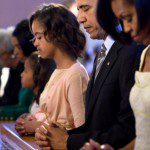In 2011, a poll conducted by the First Amendment Center found that 67% of Americans favor a separation of church and state. Although delighted, I’m skeptical of the numbers.
Social conservatives, especially in the South, are far more likely to understand the separation of church and state differently than those in the Northeast. A conservative in Massachusetts or New York is not necessarily the same as from Kentucky. Nor is a Republican from New York City likely to be comparable to one from Mobile, Alabama. In addition to these real differences, there is the greater issue of government’s role.
U.S. Senator Barry Goldwater (R-AZ), the father of modern conservatism, was often disturbed when Washington pandered to 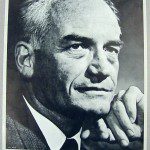 religious groups. He especially expressed displeasure toward Christian evangelical militancy to misuse and manipulate government to advance a religious agenda. The self-described “conservative traditionalist” saw a limited, secular role for government.
religious groups. He especially expressed displeasure toward Christian evangelical militancy to misuse and manipulate government to advance a religious agenda. The self-described “conservative traditionalist” saw a limited, secular role for government.
Today, in stark contrast to Goldwater Republicanism, there remains an assault by social conservatives against the metaphorical wall separating church and state.
Recently, Gov. Rick Perry (R-TX) made it clear that America is a Christian evangelical Protestant nation. Rep. Michele Bachmann (R-WI) belonged until recently to a branch of Lutheranism that thinks the forthcoming anti-Christ will be the Pope. Former U.S. Senator
Christian evangelical Protestant nation. Rep. Michele Bachmann (R-WI) belonged until recently to a branch of Lutheranism that thinks the forthcoming anti-Christ will be the Pope. Former U.S. Senator 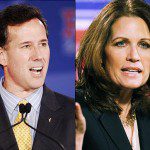 Rick Santorum (R-PA), a Catholic, has made it clear he serves a constituency of one – “God.” But does his understanding of God complement mine?
Rick Santorum (R-PA), a Catholic, has made it clear he serves a constituency of one – “God.” But does his understanding of God complement mine?
Oddly, many Americans now want to know about a candidate’s faith, yet these same citizens of Thomas Paine’s republic likely would be uneasy if asked about their belief or relationship with God during a job interview.
The United States has a church-state crisis and most Americans don’t realize it. Ironically, many Christians have done more to secularize the country and drive people from faith than atheists, liberals, humanists, Democratic activists, or card carrying members of the American Civil Liberties Union (ACLU).
Rev. Pat Robertson, one time presidential candidate, told his viewers several years ago that “you’re supposed to be nice to the Episcopalians and the Presbyterians and the Methodists … I don’t have to be nice to the spirit of the Anti-Christ.”
Gov. Mitt Romney (R-MA) is likely to receive much attention due to his religion. In the last presidential campaign, his campaign failed, in part, due to his Mormon faith. Yet he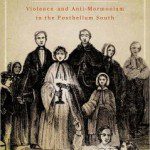 was elected in one of the most liberal and Democratic states in the country by voters who didn’t care about his religion. Massachusetts citizens assessed his qualifications on whether he would be a good steward of their government.
was elected in one of the most liberal and Democratic states in the country by voters who didn’t care about his religion. Massachusetts citizens assessed his qualifications on whether he would be a good steward of their government.
During his last presidential campaign, however, many GOP Evangelical activists wrongly accused him of belonging to an un-Christian cult. Who showed hostility to God, faith, and religion in this case? The ACLU, liberals, and Democrats can’t be blamed. It appears that religious conservatives do more harm to the image of faith and religion than the much maligned left.
Romney, while being vilified for his Mormonism by Christian conservatives in the GOP primaries, was attempting to win their support. The persecuted Romney sought to become one of the persecutors changing his moderate social positions to garner acceptance from persons with a dismissive view of his faith.
In the 2012 presidential cycle, Romney is joined by Gov. Jon Huntsman (R-UT) another Mormon, seeking the Republican nomination. Sadly, their Mormon faith once again is being used to judge them by other Christians.
Approximately 18% of Republicans said they would not vote for a Mormon for president. Although the number is even higher among Democrats, Romney’s religion, as noted above played no factor in his election in Massachusetts. One commentator even asked whether Mormons are second class citizens.
I try to be a devoted Christian, but I get anxious when the name of Jesus is invoked at a public gathering where Muslim, Buddhist, Jewish, Humanist, or other non-Christian Americans are present. I sometimes get nervous when the name of Jesus is invoked in light of how different Christian values can be understood.
There are at least three key reasons to vigilantly maintain a separation of church and state:
1. It lessons the influence of those with a religious agenda from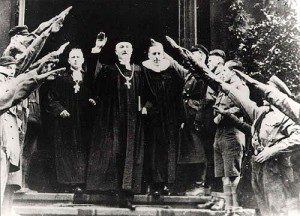 misusing government to establish an unofficial state religion.
misusing government to establish an unofficial state religion.
2. It lessons the likelihood that faith will be used as a political football to advance a narrow minded code on citizens who would not 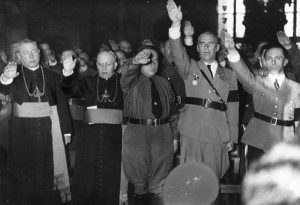 necessarily subscribe to it.
necessarily subscribe to it.
3. Public service is about serving everyone in a district, municipality, state, or the nation – Baptist, Catholic, Mormon, Muslim, Wiccan, and others – even if they didn’t vote for the winning candidate. Although a Wiccan may not vote for a social conservative, it doesn’t mean he or she should get less representation.
Clearly, there is good reason to keep a separation of church and state. In addition to Thomas Jefferson, many have supported it.
In 1644, Roger Williams, founder of Providence, Rhode Island, sought a church-state separation to keep the “wilderness of the 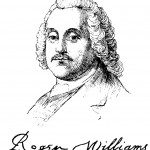 world” from compromising God’s “garden” and “paradise.”
world” from compromising God’s “garden” and “paradise.”
Forty-five years later John Locke, who influenced the Founding Fathers also wrote about keeping the holy and secular distinct.
In 1773, Baptist Isaac Backus advocated the separation of church and 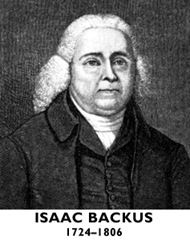 state because faith was “too high and holy and thus are beyond the competence of the state.”
state because faith was “too high and holy and thus are beyond the competence of the state.”
In 1832, President Andrew Jackson wrote that “Religion . . . enjoys in this country . . . complete separation from the political concerns of the General Government.”
In 1874, congressman and later president James Garfield said that the “divorce between Church and State ought to be absolute.”
In his Fourth Annual Message to Congress in 1880, President Rutherford B. Hayes said that the “separation of church and state [are] among the elementary ideas of free institutions.”
Elihu Root, Theodore Roosevelt’s secretary of state and later U.S. Senator from New York called the “separation between Church and State” the “great American principle.”
On three different occasions, 1878, 1947, and 1948, the U.S. Supreme Court wrote about the importance of a church-state separation.
In October 1930, President Herbert Hoover told a gathering of American Lutherans that America’s national life reflects “the principle of separation of church and state.”
In 1963, the Southern Baptist Convention declared in its “Baptist Faith and Message” that the “church and state should be separate” and that the “church should not resort to the civil power to carry on its work.” It’s surprising how things have changed today.
Despite this history, presidential candidates are again wrapping themselves in God and patriotism.
Paul is author of Crucifying Jesus and Secularizing America – the Republic of Faith without Wisdom.
© Paul Peter Jesep 2011.


